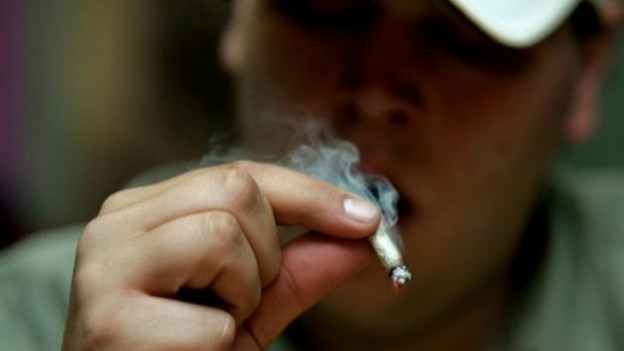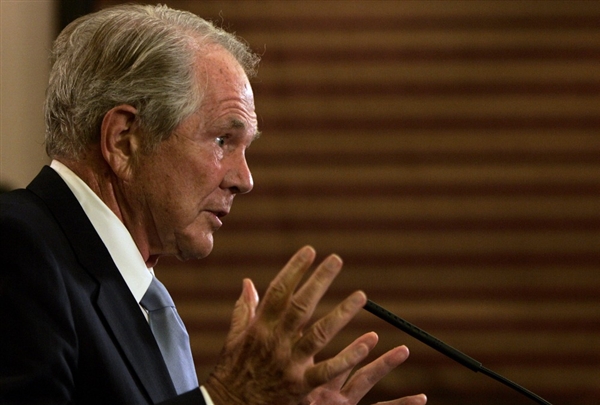News
Next States that may Legalize Recreational Marijuana
There could be a Landslide of states to follow Colorado and Washington
Colorado Senate defeats driving-while-high bill; key backer was absent
Colorado Senate defeats driving-while-high bill; key backer was absent
POSTED: 05/16/2012 01:00:00 AM MDT
UPDATED: 05/16/2012 02:42:34 AM MDTBy John Ingold
The Denver Post
A bill making it easier for prosecutors in Colorado to convict people of driving high on marijuana died in the state Senate special session Tuesday because one key supporter was absent.
After the Senate voted down the bill on an informal vote, an effort to revive it failed on a 17-17 split. The missing vote was that of Sen. Nancy Spence, a Centennial Republican who was the deciding vote on a nearly identical bill in the legislature’s regular session.
Reached by phone, Spence said she was in San Diego, where she had plans to celebrate her grandson’s birthday that were made well before the special session was called. Spence said she was prepared to fly back to Denver on short notice to vote for the bill but that she didn’t know the bill would be brought before the full Senate on Tuesday.
“I’m really sad about it,” Spence said. “I feel terrible for (bill sponsor) Steve King, who worked so hard to get that bill passed.”
The result was surprising for a bill that, again, appeared headed for passage before being tripped up late. Earlier in the day, the Senate State, Veterans and Military Affairs Committee passed the bill 4-1. That came after the bill received its final approval in the House Tuesday morning.
That meant the bill needed to pass only two votes — one Tuesday and one today — by the full Senate to head to the governor’s desk. Gov. John Hickenlooper has said he supports the bill.
The bill, HB12S-1005, would make it a crime to drive with more than a certain amount of THC — the psychoactive chemical in marijuana — in your blood. A nearly identical proposal appeared headed for passage during this year’s regular legislative session. But it became entangled last week in the end-of-session fight over civil unions and died on the calendar.
Spence said she received a text message this morning from Senate Minority Leader Bill Cadman, R-Colorado Springs, asking her how soon she could return to Colorado. Spence said she asked how soon she was needed but that she didn’t know the Senate would be taking up the bill today until she turned on her laptop to watch the Senate session remotely.
“I assumed it wouldn’t be brought up until tomorrow morning,” Spence said.
“I’m just so, so sorry and so disappointed,” she added.
Cadman said he wasn’t sure Spence’s presence would have made a difference, saying that several lawmakers were keeping quiet about their vote and might have switched against the bill had Spence been there.
“That’s how close and, I think, complicated this issue became,” Cadman, who voted for the bill, said.
Reviewing the vote shows lawmakers voted today exactly as they had during the regular session.
Senate President Brandon Shaffer, a Longmont Democrat who also supported the bill, said lawmakers didn’t play games with the bill schedule. Because every day in a special session costs the state more than $23,000, Shaffer said legislative leadership wanted to keep the session to three days. That meant the bill had to be heard today in order to pass.
“We weren’t trying to pull a fast one,” Shaffer said.
Shaffer said Spence didn’t ask for permission to miss the vote. She was listed as absent for the vote, contrary to the usual courtesy of listing lawmakers who have to miss votes as excused.
“I was very disappointed with the outcome of today’s vote,” Shaffer said.
At the earlier committee hearing, medical-marijuana activists argue that the proposed limit — 5 nanograms of THC per milliliter of blood — is too low and would result in near-certain convictions for sober drivers.
The bill’s opponents argued that medical-marijuana patients have no way of determining what 5 nanograms means. How much can they consume? How long do they have to wait afterward?
“There needs to be a way to know whether a medical patient has the 5 nanograms in their system so they can know whether they can get behind the wheel,” said Debbie Olander, a representative from the United Food and Commercial Workers union. “With alcohol you can.”
Supporters of the bill counter that the vast majority of people would be impaired at 5 nanograms and would need to wait only about two to three hours after using to fall below the limit. They argue that, even though some people could be sober at 5 nanograms, it is important to send a strong message.
“The law works best when there are clear, effective, enforceable standards,” Boulder District Attorney Stan Garnett said, testifying in support of the bill.
The regular-session version of the bill passed the full Senate by a single vote.
5 arrested for dumping garbage bag of pot in Civic Center and passing it out, police say
5 arrested for dumping garbage bag of pot in Civic Center and passing it out, police say
The Denver Post http://www.denverpost.com/breakingnews/ci_20181528/5-arrested-dumping-garbage-bag-pot-civic-center#ixzz1pmiqRrDZ
Denver Police officers arrested five people in Civic Center this afternoon, after a garbage bag full of marijuana was allegedly dumped out, re-bagged and passed out to park patrons.
Around 12:30 p.m., officers were called to the park, near where Occupy Denver typically holds demonstrations and marches, after they received reports of the marijuana, said Sonny Jackson, a spokesman for the Denver Police Department.
The bag was dumped on a blue tarp in the northeast corner of the park, police said. About 30 people were in the park when the marijuana a was being distributed.
“Why they were doing this we don’t know,” Jackson said. “This is a public park and we cannot have people openly distributing marijuana.”
It did not appear that anyone was paying for the marijuana.
Officers on bikes, motorcycles and on foot responded to the scene.
Several people in the park recorded the incident on cell phones and video cameras as officers loaded the bag into a car.
As officers cleared the park, one woman called the cops “pigs” and “terrorists.”
It is unknown if any of the people taken into custody have been arrested at the park before. Their names have not been released.
Colorado’s Legalized Marijuana Initiative has 15 Days to Collect Approximately 2500 Valid Signatures
Colorado pot-legalization initiative needs more signatures
Posted: 02/03/2012 07:34:43 AM MST
Updated: 02/03/2012 02:15:16 PM MST By John Ingold
The Denver Post
A proposed initiative to legalize limited possession of marijuana in Colorado needs more signatures to qualify for the ballot.
The Colorado Secretary of State’s office announced today that the campaign collected only 83,696 valid signatures. It needs 86,105 to qualify.
The campaign will now have 15 days to collect the remaining 2,409 valid signatures. Mason Tvert, one of the initiative’s proponents, said in a statement today that the announcement was unexpected but “just a very small bump in the road.”
“We are confident we will complete this process successfully and qualify the initiative for the ballot,” Tvert said.
Last month, the campaign turned in more than 160,000 signatures in boxes of petitions. But, after reviewing a sample of those signatures, the Secretary of State’s office could not conclusively project whether there were enough valid signatures on the petitions for the initiative to qualify.
That meant the Secretary of State’s office needed to go line-by-line through the petitions, verifying each signature. Today was the deadline to complete that task.
The initiative, a proposed constitutional amendment, would legalize possession of up to one ounce of marijuana for people 21 and older. It would also allow people to grow a small number of marijuana plants in their homes.
The measure would also allow for people to open marijuana retail shops, but it would give communities the ability to ban those businesses. Lastly, it would legalize the growing of industrial hemp.
All such activities would remain illegal under federal law.
The initiative — for now known as Proposed Initiative No. 30 and dubbed by the campaign The Regulate Marijuana Like Alcohol Act of 2012 — is one of three separate proposed measures for the 2012 ballot that would legalize marijuana in Colorado.
Another, from Cannabis University of Colorado head Michelle LaMay, would prohibit judges from imposing penalties on anyone for marijuana possession of any amount. Supporters call the initiative The Relief for the Possession of Cannabis Act. The campaign behind it has announced it will begin collecting signatures this month.
Meanwhile, a third initiative was filed Thursday. That measure, which supporters call Legalize 2012, would create in Colorado’s constitution a fundamental right to use and possess any amount of marijuana for people over 18. It would allow for retail sales of marijuana “without restrictions that are onerous or burdensome.” It would require the state attorney general to file lawsuits to prevent the federal government from enforcing federal marijuana laws in Colorado. And it would create a state-funded commission that could help Colorado citizens facing federal marijuana prosecution with their defense.
That initiative has not yet had its first administrative hearing.
Read more: Colorado pot-legalization initiative needs more signatures – The Denver Post http://www.denverpost.com/breakingnews/ci_19885405#ixzz1liVKPtHX
Read The Denver Post’s Terms of Use of its content: http://www.denverpost.com/termsofuse
Feds Target Financial Institutions Associated with Medical Marijuana Clinics
Feds Target Financial Institutions Associated with Medical Marijuana Clinics
NYTimes.com
By SUSANNA KIM
Oct. 26, 2011
In its effort to shut down California’s booming medical marijuana dispensaries, the Justice Department is seeking to seize the property where the clinics are based, even going after at least one bank that holds the mortgage on a clinic.
Chase bank received a letter to evict the Marin Alliance for Medical Marijuana, according to Greg Anton, attorney for the clinic. The bank owns the note on the building in Fairfax, Calif.
According to Anton, the bank received a similar letter from U.S. attorney Melinda Haag for the northern district of California that was sent to the Alliance’s landlord on Sept. 28 and other medical marijuana dispensaries. The letters threatened that unless the owners evicted the cannabis clinics within 45 days, they could face criminal action.
Anton said he obtained a copy of the letter to JPMorgan Chase through the clinic’s landlord, as reported by the Bay Citizen.
A spokesman for JP Morgan Chase said he had no comment and would not confirm whether the bank received a letter from the U.S. attorney.
The Justice Department announced on Oct. 7 it is cracking down on the illegal distribution of marijuana in four federal districts in California, which has had a growing cannabis industry since legalizing medicinal marijuana in 1996 through Proposition 215.
A spokesman for the U.S. attorney in the state’s Northern district said he could not comment on who received letters.
The U.S. attorneys for Sacramento, San Francisco, Los Angeles and San Diego revealed enforcement actions against at least 16 cannabis distributors in those federal districts. Deputy Attorney General James Cole said the department will not focus the investigation on individual patients with serious illnesses like cancer or their immediate caregivers.
Lynnette Shaw, owner of the Marian Alliance for Medical Marijuana, which calls itself the oldest medical marijuana dispensary in the state, said her landlord is planning to evict the business from the premises, though Shaw is hoping to obtain a court order or even an executive order that would bring a temporary stay on the U.S. Attorneys’ actions.
Shaw said she has obeyed all state laws for 15 years and never diverted medicine for non-medical purposes or sold out of state.
But she and her landlord, who she has been supportive since the time the clinic launched, are fearful of the Justice Department’s threats.
“My landlord is terrified, I would never do anything to endanger him,” Shaw said. “Now he’s asked us to remove marijuana from premises.”
On Tuesday, state and local legislators gathered with clinic owners in San Francisco prior to President Obama’s fundraiser event, calling on the president to intervene.
“This destructive attack on medical marijuana patients is a waste of limited law enforcement resources and will cost the state millions in tax revenue and harm countless lives,” California Assemblyman Tom Ammiano said. “President Obama needs to reverse this bad policy decision and respect California’s right to provide medicine to its residents.”
Aaron Smith, executive director for the National Cannabis Industry Association, said, “President Obama needs to immediately reign in the Justice Department for defying his administration’s stated policy to respect state medical marijuana laws.”
The Justice Department’s action places into question marijuana-related activities in 15 other states and the District of Columbia, which have legalized medicinal marijuana in some form.
Kevin Sabet, former Senior Policy Advisor to President Obama’s Drug Czar, Gil Kerlikowske, and currently a consultant to drug prevention and policy organizations, said financial institutions that deal with medical marijuana organizations should be on alert.
“Smoked marijuana remains illegal in all states, and federal law — while recognizing certain components of marijuana as having medicinal value — does not allow the whole marijuana plant to be smoked for any purpose, including purported medical purposes,” he said.
Sabet also warned that all states with legalized medical marijuana should pay attention to the enforcement actions in California.
“Remember, all actions have to be approved by Attorney General Holder, so it’s hard to imagine that California would be the only place the Department of Justice is focusing on,” Sabet said.
While dispensaries outside California have not received similar letters from the Justice Department, some have been audited by the IRS for taking business deductions that were related to “trafficking in controlled substances.” The IRS can penalize cannabis dispensaries based on section 280E of the tax code, passed during the Reagan administration in 1982, which prohibited drug dealers to take any deductions based on trafficking activities.
Jill Lamoureux, chairwoman of the National Cannabis Industry Association, said she knew of one audit in Colorado, the details of which are confidential. She said the deductions were accepted an no additional taxes or fines were assessed.
“If the IRS determines across the board that this industry cannot take standard business deductions it will severely limit the ability of these businesses to thrive serving patients and contributing to our state’s economies desperately in need of new growth industries,” Lamoureux wrote in an email to ABC News.
Sabet said the federal government is sending a message that the “rush” in the medical marijuana industry is “over.”
“People – including drug dealing organizations – flocked to the promise land of California thinking they could get rich off of this grey market, but the federal government is now reminding folks that there’s nothing grey about marijuana markets,” Sabet said. “‘Marijuana is an illegal drug and we take it seriously,’ is the message they seem to be sending.”
Tunnels are Tijuana
Raids Don’t Keep Tunnel City From Humming Underground
Tony Cenicola/The New York Times
The authorities on Thursday presented the results of a raid in Tijuana: bricks of marijuana and a smuggling tunnel into California.
By DAMIEN CAVE
Published: December 1, 2011
TIJUANA, Mexico — Squatting and sweating inside the latest drug tunnel found here in this Pacific border city, it was easy to understand the amazement expressed by Mexican and American officials. This one was a stunner.
A motorized cart on metal rails ensured quick passage.
The tunnel ran for almost half a mile, with wooden planks holding off the earth on all sides. Energy-saving light bulbs illuminated the route. A motorized cart on metal rails ensured quick passage, while a steel elevator hidden beneath the floor tiles in a warehouse made the 40-foot descent to the tunnel’s entrance feel like the slow drop into an unregulated mine shaft.
And yet, here is the simple fact obscured by superlatives like “the most elaborate” and “the most sophisticated,” which officials seem to lather on each new find.
Tunnels are Tijuana. They have become an inevitable, always-under-construction or always-operating part of city life, as entrenched as cheap pharmacies and strip clubs.
Residents now shrug them off. “If you have a lot of money, you can do anything,” said Blanca Samaniego, 36, as she walked by the warehouse where Mexican officials unveiled the tunnel on Wednesday. “It will never change. It will never stop.”
The ground beneath her neighborhood in the hills — near the airport and the upgraded, shimmering border fence patrolled 24/7 by American agents — has been punched full of holes for years. Almost every kind of building has been used to hide a logistical operation that is as much about the American taste for a high as it is about the low-down removal of dirt.
Just a few weeks ago, below a more rudimentary warehouse nearby, the authorities found a different tunnel with an elaborate ventilation system. A few blocks from that, there sits an empty flophouse, where thick concrete now caps a passageway discovered by the authorities last year. Farther east, residents note a tunnel found in 2008, and just past the next major intersection, there are two more: one under a small home and the other below a bodega across from a factory.
Other tunnels have been found downtown, near the main border crossing. Wherever there is a border fence climbing high, there seems to have been an attempt to burrow below, usually to a parking lot in California where drugs can be hauled through a manhole cover, or to a business that almost looks legitimate.
In the latest case, the tunnel ran to Hernandez Produce Warehouse, a fruit and vegetable company in California whose only product seemed to be green and best when smoked.
Luis Ituarte, 69, an artist who runs a gallery here called La Casa del Túnel — where a tunnel was found about decade ago — said that Tijuana officials would be smart to move beyond publicizing their subterranean finds and then shutting them down. He argued that Tijuana should capitalize on its historic identity as a city that has been serving up vice since 1907, when President Porfirio Díaz legalized gambling, or 1920, when the United States made alcohol illegal.
“Las Vegas, Tijuana and Havana were all built by the same kind of people,” Mr. Ituarte said. “Only Vegas has taken on its bad reputation.”
Not that this is the direction things are heading. The mayor here recently rejected demands from cultural groups asking to take over La Ocho, a notorious prison that had been decommissioned.
Mexican Army officials, during a tour of this week’s elaborate tunnel, mostly focused on the triumph of the discovery.
“These are achievements that increase public security,” said Gen. Gilberto Landeros, standing at the tunnel entrance as local reporters took snapshots of one another in front of the long, dim hole. “We’re pounding at the economy of narcotrafficking.”
At the very least, he had a lot of marijuana to point to. Hefty bricks of the stuff, wrapped tightly in orange and green plastic, surrounded him when he announced the discovery of the tunnel inside the empty warehouse here in Tijuana. The total haul, from both sides and a truck driven from the site in San Diego, was 32.4 tons, with a street value of about $65 million — a new record for a tunnel-related seizure, according to American officials.
Harder to see, unmentioned, but easy to imagine: how many tons moved across before that load was found.
The evidence around the tunnel — worn-out soccer cleats, dusty oscillating fans, empty water bottles — suggested that the operation had been going for months, a supposition Mexican officials did not deny. At that rate, hundreds of tons of marijuana worth hundreds of millions of dollars would have moved through this one tunnel during its life span.
Most likely somewhere nearby, in another tunnel, the flow continues. The next announcement and news tour may be only weeks away.





